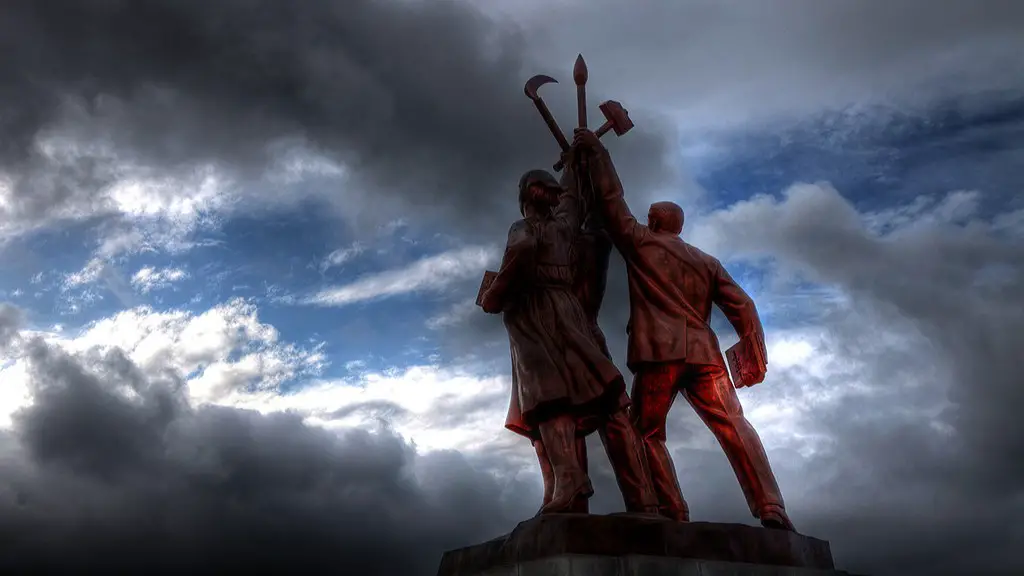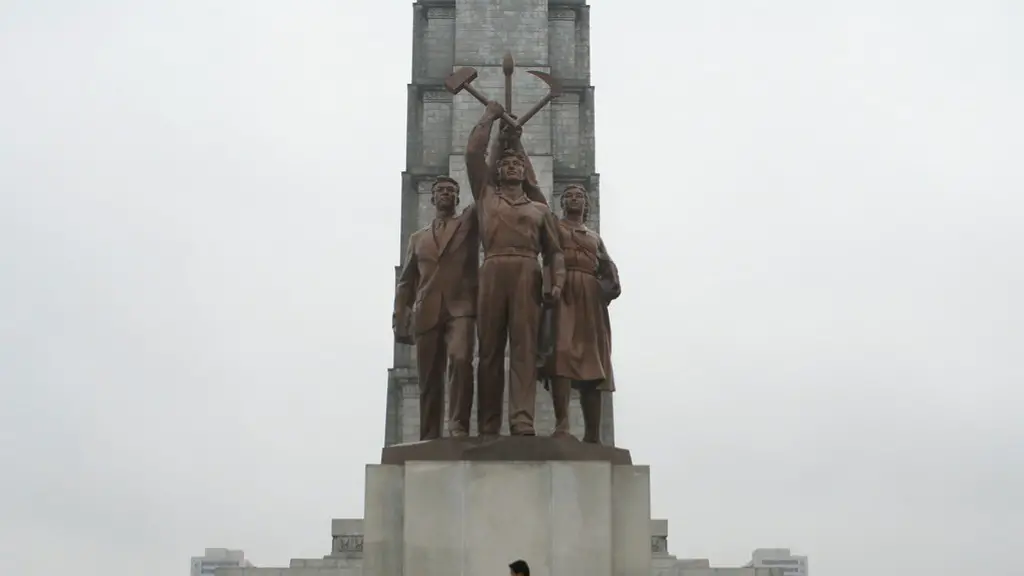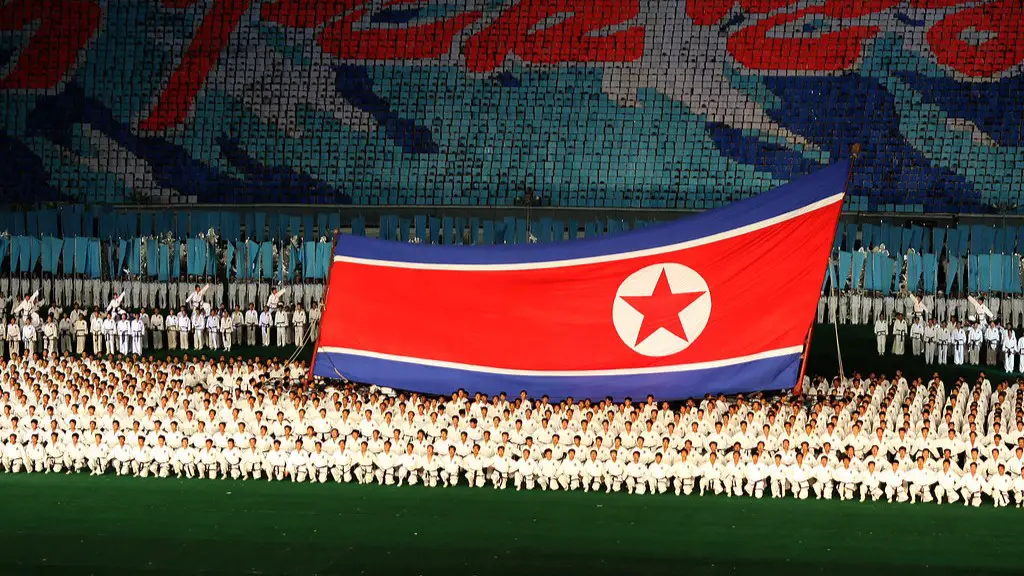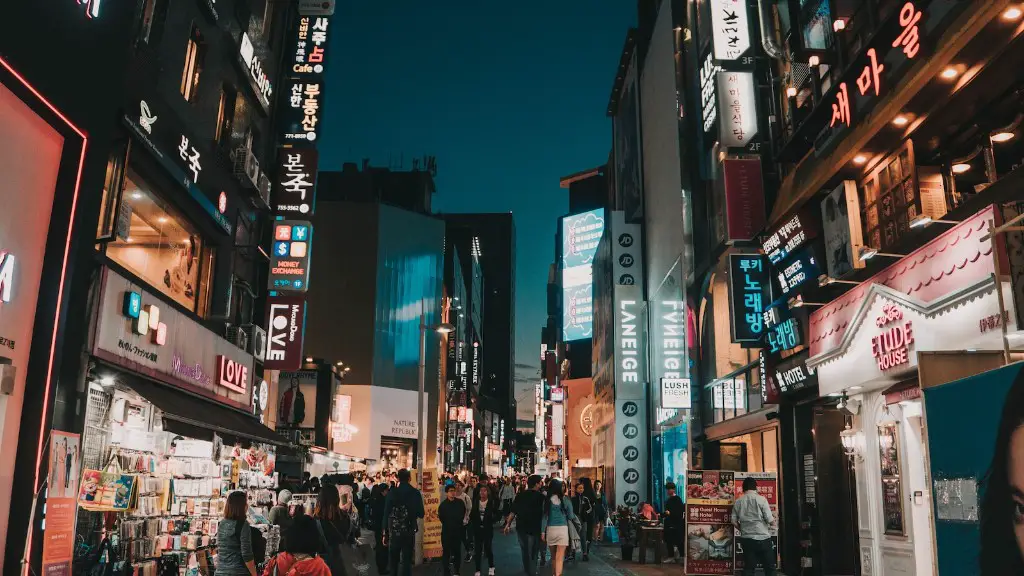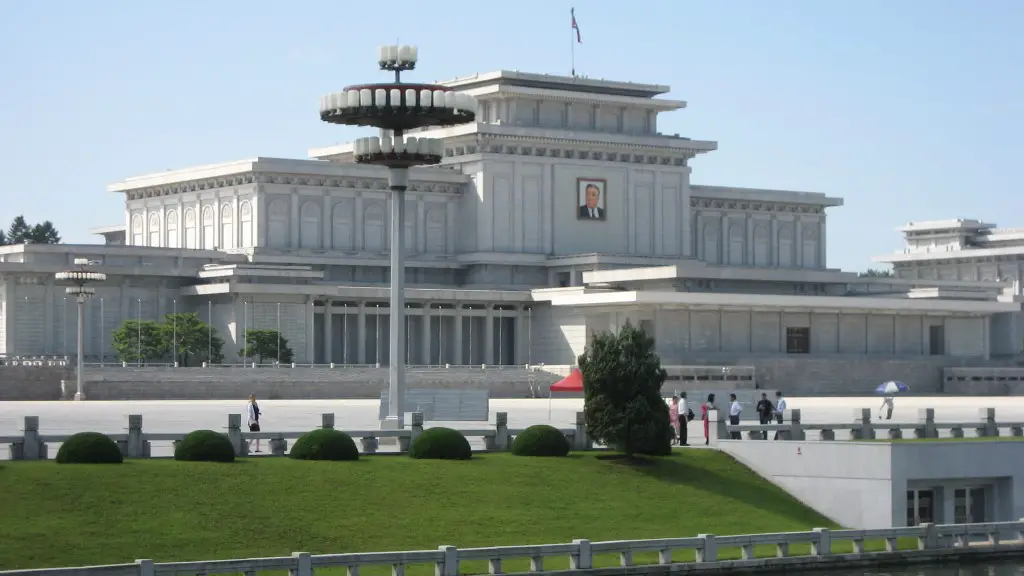In North Korea, religion is viewed as a form of superstition and is illegal for citizens to practice. It is believed that the oppressive nature of the regime is responsible for this restriction, as religious practices can be seen as a threat to its absolute power. There has been a long history of religious suppression in the country, which has led to the imprisonment, torture and execution of several believers.
North Korea’s Constitution states that the populace must follow its own Juche philosophy that promotes an ideology of national self-reliance. This nationalist approach to governance has encouraged the idea that religion should not be practiced in North Korea as it is considered incompatible with the principles of the state. Moreover, the government strictly monitors religious activities and severely punishes those who are found to be engaging in religious activities.
North Korea is considered one of the least religious countries in the world. The government has closed all churches and religious institutions, and those holding religious beliefs or practices are believed to be severely punished or killed. Despite this, there are some reports of people secretly practicing underground religion in their homes, although not many specific details are known about such practices. There are also reports that the punishment for engaging in religious activities is quite severe, ranging from death to labour camp detention, imprisonment, torture and confiscation of property.
The reasons for the government’s suppression of religion are varied and complex. It is believed that the government seeks to control its citizens and eliminate any competing loyalties to an authority other than itself. It is also argued that the ban on religion is a way for the government to maintain control over its citizens and to ensure that their devotion is to the state and not to any outside power. Moreover, it is thought that the government fears that religion could be a way for other countries to meddle in their internal affairs, as well as to spread ideas that are not in line with North Korean ideology.
Despite the ban on religion in North Korea, it is believed that there are still some people who practice their faith in secret. These individuals often risk severe repercussions and often face persecution, detention and even death. In addition, there are reports of some foreign missionaries entering the country and engaging in religious activities, although such activities could lead to arrest and deportation.
History of the Ban
The ban on religion in North Korea dates back to the 1950s, when Kim Il-sung and the Korean Workers’ Party declared the country a socialist state. This move marked the beginning of the government’s policies aimed at curbing religious beliefs and activities. In 1966, the government officially declared Communism to be its official state religion and the ban on religion was officially enacted. Since then, the government has strived to suppress religion in all its forms and any belief in a higher power other than the state is viewed as subversive and dangerous.
In addition, the government has also discouraged traditional practices such as ancestor worship, which were once common in North Korea. In recent years, the government has also instituted a campaign to eliminate Christianity from the country, clamping down on all Christian activities and arresting those suspected of being involved in any sort of religious activity.
The official policy of the North Korean government is that the nation is completely godless and the notion of an infinite and omnipotent higher power has no place in the country’s political and social life. The government seeks to ensure that religion is not practiced and that any attempts to do so are swiftly dealt with. It is believed that North Korea has the most oppressive anti-religious environment in the world.
Persecution of Believers
There have been numerous reports of North Korean citizens being persecuted for their religious beliefs. Believers have been subject to confinement, torture, imprisonment and even execution. In addition, North Korean citizens who have fled the country have reported that they have suffered severe retribution if they were caught practicing their faith. For example, Christian churches that have been found operating underground are often subject to harassment and raids by the government, which can lead to the persecution of its members.
In addition, there have been reports of believers being forced to recant their faith and even to inform on their fellow believers. The government also reportedly encourages informants to report the activities of other believers, which can lead to further persecution of those who practice their faith.
The situation has improved in recent years due to international pressure, but religious beliefs and activities are still harshly punished in North Korea. Those suspected of engaging in religious activities face severe repercussions, which can include imprisonment, torture and even death.
International Pressure
The international community has long been pressing the North Korean government to end its ban on religion and to allow its citizens to practice their faith. In 2014, the United Nations Human Rights Council passed a resolution condemning the government’s treatment of religious believers. This resolution called on the government to put an immediate end to the ban on religion and to respect the freedom of religion for all its citizens.
Despite these international efforts, there has been little progress in North Korea in improving the situation for believers. The government continues to oppose any public displays of religious practice and continues to punish those who are found to be engaging in religious activities.
International pressure has shown North Korea that its ban on religion is not acceptable and that the government needs to take steps to ensure the safety and well-being of its religious adherents. North Korea has yet to make any significant progress towards ending its ban, but some hope that the situation will improve with further pressure and support from the international community.
Impact on the Public
The ban on religion has had a profound effect on the North Korean public. Many citizens have come to view religion as an outdated form of superstition and fear that engaging in religious activities or even discussing religious topics openly could lead to severe repercussions from the government.
The ban on religion has also led to a decline in the number of religious organizations operating in the country. Most religious organizations have been shut down or forced to operate underground and may not be able to freely serve their congregations or preach openly to the public.
The ban has also led to a decline in worship and faith among North Koreans. Studies have indicated that the number of North Koreans who report having a religious affiliation is considerably lower than those of other countries. This suggests that the ban has led to fewer people engaging in religious activities and that those who do practice their faith do so in secret.
Moreover, the ban has led to an increase in religious persecution and discrimination against religious adherents in North Korea. Religious minorities such as Christians and Buddhists, who are often seen as a threat to the government’s power, are especially vulnerable to persecution, as are those who are caught engaging in religious activities or expressing their faith openly.
Conclusion
The ban on religion in North Korea has had a profound and far-reaching effect on the country and its citizens. The government’s oppressive regulations and punishments for engaging in religious activities or practicing one’s faith have led to a decline in worship among North Koreans, and has resulted in more religious persecution and discrimination. Religious minorities, especially Christians and Buddhists, have been especially vulnerable, and it is estimated that hundreds of believers have been arrested, tortured and executed for the crime of practicing their faith.
The international community has long been urging North Korea to end its ban on religion and to respect the freedom of belief for its citizens. Despite these efforts, there has been little improvement in the situation, but some hope that further pressure and support from the international community can lead to a positive change in the future.
